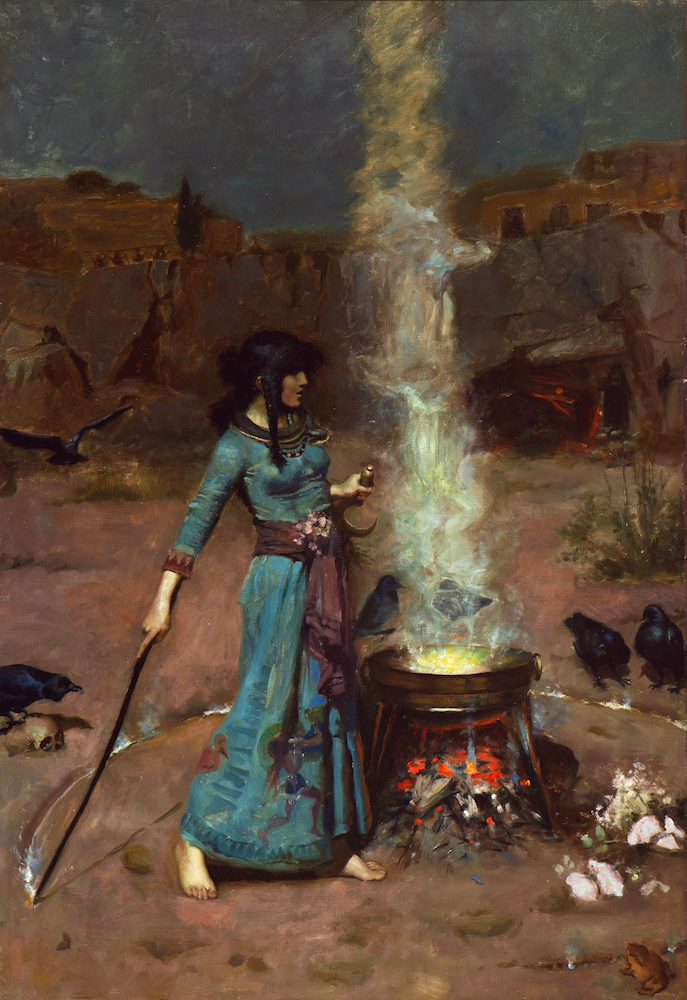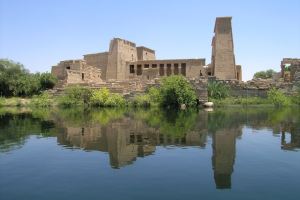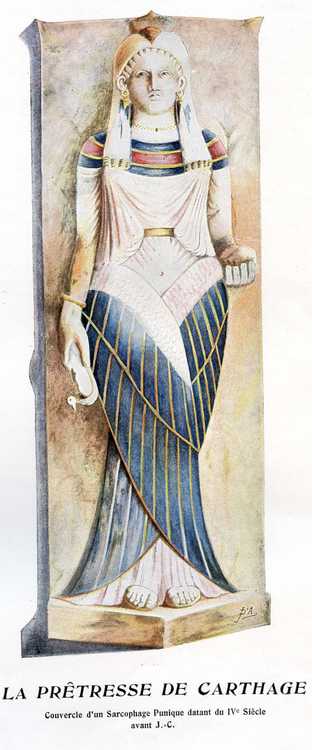Many of you who read this blog may have a special relationship with Isis; you may be Her priestess or priest. And perhaps you, like me, have also been searching for a gender-neutral term for that special relationship. Some in our community have adopted “priestex” based on other contemporary gender-neutral endings.
I can offer you an option from ancient Egypt as well.
Now, ancient Egyptian was a highly gendered language: Goddess—Nudjeret; God—Nudjer. As in English, where we might add -ess to feminize a word, they added “t” to the end of the word to indicate the feminine. Most Goddess’ names, in Egyptian, end in “t.” (We usually add an “e” before the “t” to make it pronounceable as in Amun/Amunet.) The Egyptian titles that we translate as priest or priestess are hem (masc.) or hemet (fem.) Nudjer/Nudjeret. More literally, these are translated in English as “servant of the God/dess.” Since “servant” has no gender in English, servant of Isis is a perfectly good, gender-neutral term for this special relationship.
Whatever title we may prefer, the relationship itself comes with responsibilities. However, unless we are part of a formal organization that specifies what those responsibilities are, each of us will have to decide for ourselves exactly what serving Isis means to us. For me, there are five main keys, which I’ve written about on this blog—from worship and gaining knowledge about Her to ritual competency and spiritual growth.
When trying to sort out decisions like these, I often look to the past. Is there anything we can learn from the experiences of ancient servants of the Goddess? Of course, we have some information about what was required of them within the temples. But what was going on in their heads and hearts?
Unfortunately, we have little left that tells us what it meant to them inwardly and spiritually. No doubt, some servants were more devout than others. Nonetheless, there is every reason to think that indeed there were inner experiences. The Egyptian reputation for religious and philosophical knowledge was immense. It would only make sense that those who were sincerely following their path would have important personal, spiritual experiences—just as people have always done.
Though records of these inner experiences are few, we do have hints. For instance, from the the reign of Thutmose III we have an inscription that indicates that priestly initiations meant something spiritually as well as professionally. A new royal vizier, who was made Prophet of Ma’et*, says of his experience:
My abilities were not as they had been: my yesterday’s nature had altered itself, since I had come forth in the accouterments of a vizier, having been promoted to be Prophet of Ma’et.
This man felt truly changed by “coming forth” as a vizier and servant of Ma’et. We can assume that at least some of the servants of Isis had no less an experience than this man. Thoth also seemed to inspire warm feelings in His devotees—and as many of them were scribes, they had the ability to express it. They called Him the Lord of Friendliness and the God of Incomparable Goodness.
As late as the Greek Magical Papyri, this friendliness with Thoth remains. In PGM VIII, 1-63, Thoth is called Hermes, but we can known He is Thoth because the spell says that His images include an ibis and a baboon, that His name is great in Hermopolis (Khmunu; “City of the Eight”) and that even Isis, “the greatest of all the Gods,” calls on Him in every crisis. Part of the spell states, “For You are I, and I am You; Your name is mine, and mine is Yours. For I am Your image.” While the magic here is powerful, the sentiment is gentle and intimate.
In what is today known as the Archive of Hor, we have some records of intimate feelings for the Goddess. Hor was a priest of Isis and Thoth who came from the town of Sebennytos, the town that grew up around the Temple of Isis there, and which the Greeks called Isiopolis. He writes beautifully of Her, has prophetic dreams from Her, and calls Her by what I think is a pet name, “my Tana.” You can read his story here.
Yet the closest thing we have to a personal account of spiritual experiences related to Isis is in a novel by a North African named Apuleius. They are in his book, The Golden Ass, and he writes about his initiation into the Mysteries of Isis.
It dates to the late second century CE, when Isis’ popularity was most widespread. Because it is novelized, it gives us a glimpse of the protagonist Lucius’ interior state. And while Lucius is an initiate of Isis and not a priest, one could make an argument that he would probably qualify as what we would call a priest of Isis today. He is an initiate, he remains involved with the religion—serving in its special ranks or grades—and he outwardly marks himself as an Isiac by shaving his head.
In the novel, Lucius has had a spiritual crisis. After being magically turned into an ass, he has gone through trials and tribulations and finally throws himself upon the mercy of the Moon Goddess. She reveals Herself as Isis. She says that though She is called by many names, Her true name is Queen Isis.
She tells Lucius not to fear:
But above all things beware thou doubt not nor fear of any of those things as hard or difficult to be brought to pass…
…and know this of certainty, that the residue of thy life until the hour of death shall be bound and subject to Me; and think it not an injury to be always serviceable towards Me whilst thou shalt live, since as by My means and benefit thou shalt return again to be a man. Thou shalt live blessed in this world, thou shalt live glorious by My guide and protection, and when after thy allotted space of life thou decendest to the Underworld, there thou shalt see Me in the subterranean firmament shining (as thou seest Me now) in the darkness of Acheron, and reigning in the deep profundity of Styx and thou shalt worship Me as one that hath been favorable to thee. And if I perceive that thou art obedient to My commandment and hold to my religion, meriting by thy constant chastity My divine grace, know that I alone may prolong thy days above the time that the Fates have appointed and ordained.”
As an initiate of Isis, Lucius’ life is to change. He is to be Hers forever; and in return, She will not only save him from his present difficulty, but prolong his lifespan.
The priest who is overseeing his initiation tells Lucius that to take Isis’ holy orders was like a “voluntary death and slow recovery.” Yet, even if someone were on the edge of death, and had but the strength to receive Her Mysteries, that person could be made new-born and healthy once more. He advises Lucius to “accept of your own free will the yoke of service.”
The mental and emotional state of Lucius after his initiation is one of pure love and wonder. He is passionately in love with the Goddess—and he remains so throughout all the days of his life.
I’ve had an experience like that. And I have always remembered it. It is one of the many experiences with Her that has made me passionate in my love of Her and dedication to Her.
Have you had such an experience?
* I’m only looking at a translation here and don’t have the Egyptian. When Egyptologists translate “prophet,” they usually mean a high priest, thus this title may have been Hem Ma’et Tepi or chief servant of Ma’et.































